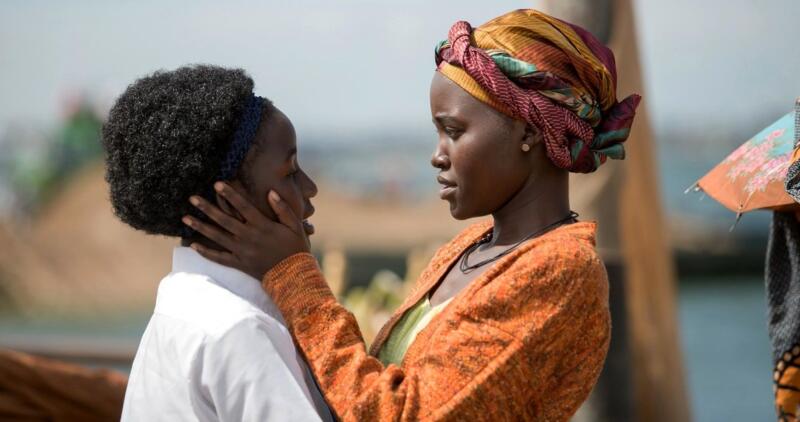
Some of the most ignored stories in the film industry are those of women and girls of the African Diaspora. Though we go through cycles where Hollywood pushes out a plethora of stories about people of color for a set amount of time, films like “Eve’s Bayou”, “Pariah”, and “Beasts of the Southern Wild” are far and few in between. This year, Disney has sought to go against the grain to bring to us the story of 20-year-old Ugandan master chess player, Phiona Mutesi, in Mira Nair’s “Queen of Katwe”. A rarity for a mainstream Hollywood film, “Queen of Katwe” has an all-Black cast and (most importantly) not a white savior in sight.
“Queen of Katwe” is an extraordinary story of a young woman from the slums of Uganda. Phiona beat all odds by learning and mastering one of the most strategically challenging games in existence and used this incredible skill to better herself and her family’s circumstances. The film starts off promisingly enough; veteran filmmaker Mira Nair is a master at bringing rich settings to life, with succulent cinematography and stunning lighting; an homage perhaps to one of her earlier films, “Mississippi Masala” starring Denzel Washington. We meet Phiona (played charmingly by Ugandan dancer Madina Nalwanga), in 2012 as she sets out to compete in the National Junior Chess Championship in Uganda.
However, Phiona’s journey neither begins nor ends here. We’re quickly pulled back in time to 2007, where we meet a haggard and worn young girl, whose daily duties include helping her single mother raise her younger siblings by doing chores and selling corn in the streets and markets of Katwe. Lupita Nyong’o is absolutely arresting as Phiona’s mother, Nakku Harriet, a broken down yet determined woman who has been hardened by her circumstances but desperately yearns to provide for her children. Nyong’o delivers a performance unlike anything we have seen from her thus far and proves, once more, that she is a master at her craft.
On a random day on the streets of Katwe, Phiona follows her brother into a dusty makeshift porch where she meets a fellow Ugandan and missionary Robert Katende (played by David Oyelowo). Under his ministry, Phiona learns not only about chess, but also about belonging and taking charge of her own fate. Surprisingly, it’s the scenes that focus on the actual game of chess, the board and its pieces that are somehow the most invigorating for the viewer.
Regrettably, the wonderful performances by Oyelowo, Nyong’o, and newcomer Nalwanga aren’t enough to completely ignore the often patchy rhythm of the storyline, and the cheesy Disney-esque witticisms that are interjected throughout the narrative. As an adult, I often felt lost trying to understand some of the stylistic choices in the film, especially when it came to the offbeat humor. Therefore, I’m certain children would not quite understand the quips either.
Still, the point of the film comes across and works perfectly as a story of all-encompassing feminism. Despite all of her success, Phiona’s life is no fairytale, and Nair is careful to make that quite clear. The film doesn’t shy away from the hardships that Phiona and her family face daily. For example, though his death is not explicitly explained in the film, the real Phiona Mutesi’s father died from complications of AIDS when she was just three-years-old. Phiona’s mother has very little money for food, the rainy seasons are devastating for the family, and an accident nearly obliterates them all. Yet, through her own sheer determination, and Robert’s constant coaching and vigilance, Phiona is determined to not be made a victim of her circumstances or her surroundings. Furthermore, it’s her domination in the world of chess (which leaves no room for passivity) that forces her to press forward despite constantly being boxed in a corner.
Overall, the film is not without its flaws. However, in the end, you aren’t just rooting for Phiona, but also for all of those who have found themselves in similar situations; especially Black girls. More than anything, “Queen Of Katwe” is a film that teaches us as Oyelowo’s character says in the film, “You belong where you believe you belong, [and] sometimes the place you’re used to is not where you belong.”
Aramide A Tinubu has her Master’s in Film Studies from Columbia University. She wrote her thesis on Black Girlhood and Parental Loss in Contemporary Black American Cinema. She’s a cinephile, bookworm, blogger, and NYU + Columbia University alum. You can read her blog at: www.chocolategirlinthecity.com or tweet her @midnightrami
